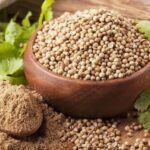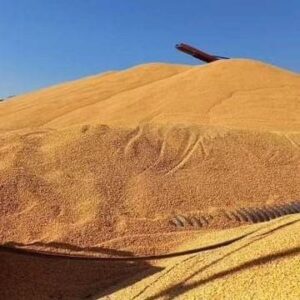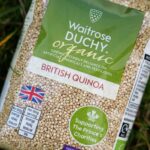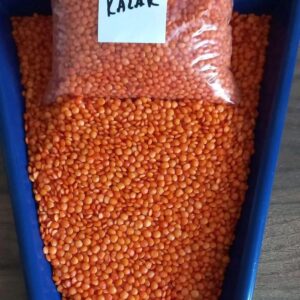Physical specifications
Type: Whole dried seeds.
Color: Light brown to yellowish brown.
Shape: Round to oval, with ridged surfaces.
size:
Diameter: 2–5 mm.
Sorted by size and weight, depending on quality standards.
Aroma: Warm, citrusy and slightly nutty.
Taste: Slightly sweet, with citrus and earthy undertones.
Moisture content: ≤ 10% (for long-term storage).
Purity: ≥ 99% (depending on grade).
Foreign matter: ≤ 0.5% (eg dust, stems or foreign material).
Broken seeds: ≤ 5%.
—
2. Chemical specifications
Volatile oil content: ≥ 0.2% (responsible for aroma and taste).
Main components: High in linalool and pinene.
Ash content:
Total ash: ≤ 8%.
Acid-insoluble ash: ≤ 1.5%.
Pesticide residues: Within the permissible limits according to international standards.
Heavy metals:
Lead (Pb): ≤ 2 ppm.
Cadmium (Cd): ≤ 0.5 ppm.
—
3. Microbiological specifications
Total Plate Count (TPC): ≤ 10,000 CFU/g.
Yeast and mold: ≤ 100 CFU/g.
Well. coli: Missing in 1 g.
Salmonella: Missing in 25 g.
Aflatoxins: ≤ 10 ppb (B1, B2, G1, G2).
—
4. Evaluation standards
degrees:
Premium/Grade A: Large, uniform seeds with high purity.
Class B: Slight variations in size, color or clarity.
Industrial Grade: Lower quality for processing purposes.
Certifications: Compliant with international standards such as FSSAI, ISO or USDA Organic (if applicable).
—
5. Packaging Specifications
Packaging material:
Jute or polypropylene sacks for bulk export (25 kg or 50 kg).
Food grade plastic or vacuum sealed bags for smaller retail packages.
Labelling: Product name, grade, net weight, origin, batch number and certificates.
Storage conditions:
Cool and dry place (< 25°C), with relative humidity < 65%.
Protected from direct sunlight and moisture.
—
6. Nutritional information (per 100 g)
Calories: ~298 kcal.
Carbohydrates: ~55g.
Protein: ~12 g.
Fat: ~17g.
Fibers: ~41g.
Minerals: high in calcium, iron, magnesium and potassium.
Vitamins: Contains vitamin C and some B-vitamins.
—
Applications
Culinary: As a spice in curries, pickles and spice mixes.
Medicinal: Used in traditional medicine for digestive health and anti-inflammatory properties.
Industrial: Extraction of essential oil for flavoring and perfumery.






Reviews
There are no reviews yet.